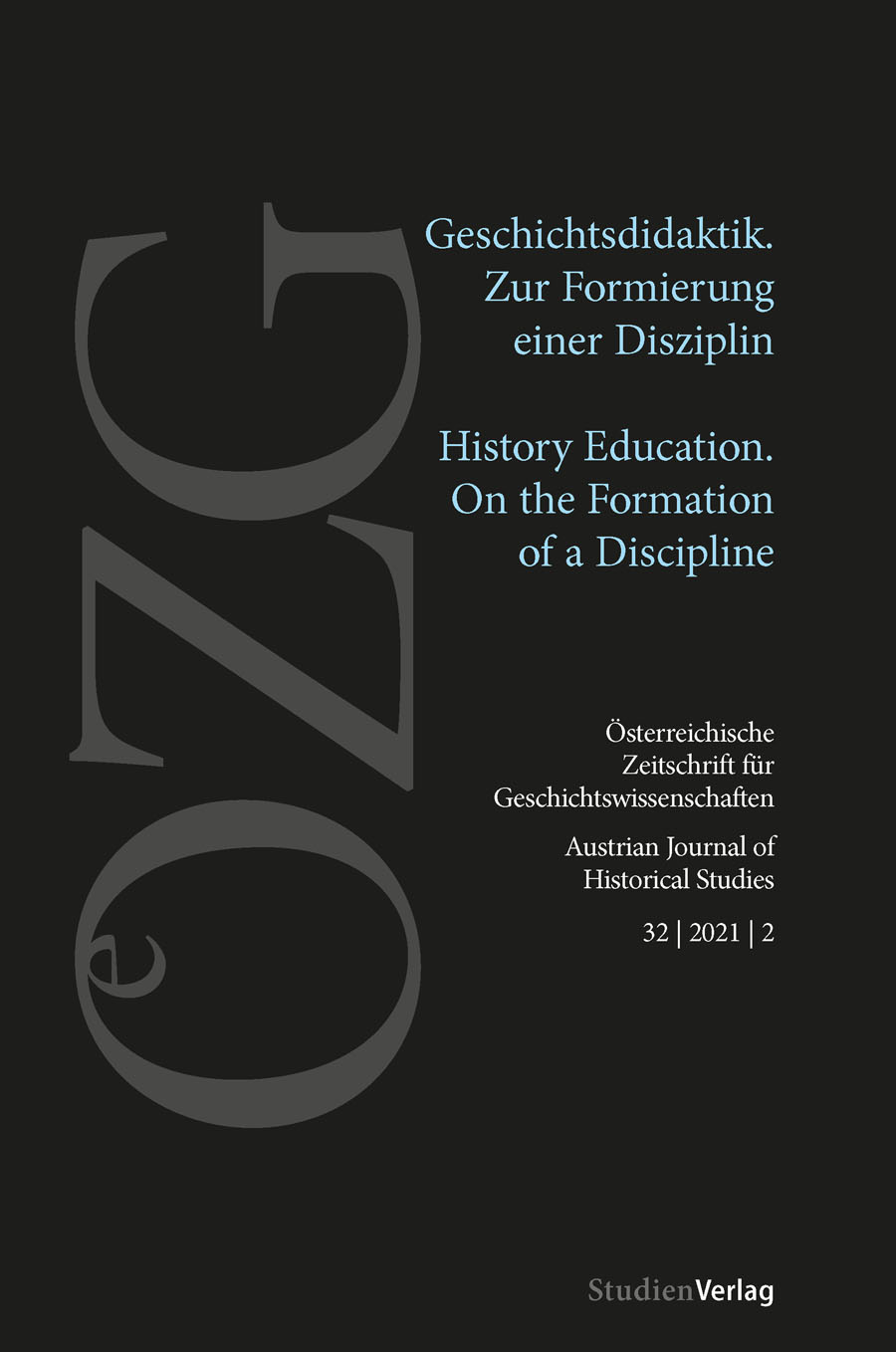The Austrian Higher Education Entrance Qualification in History: An Assessment of Subject-Specific Competencies
DOI:
https://doi.org/10.25365/oezg-2021-32-2-8Keywords:
school leaving examination, higher education qualification, competences, methodological competences, orientation competences, evidence of reflectivity, reproduction of knowledge, level of developmentAbstract
The Austrian higher education entrance qualification was reformed in 2012 with the objective of showing subject specific skills/competencies. This article examines demonstrations and levels of development of historical-political competencies of high school graduates, as seen in oral final exams. The epistemological basis of this study is the competence model of “FUER Geschichtsbewusstsein”, a working group for historical awareness, as it was incorporated into school curricula. The research process consists of two steps. First, subject-specific skills are examined using content analysis, then this evidence is rated in level range levels. The gradual range of the thus collected competencies is, on average, at basic level, thus missing the expected target.
Downloads
Published
How to Cite
Issue
Section
License
Copyright (c) 2021 Austrian Journal of Historical Studies

This work is licensed under a Creative Commons Attribution 4.0 International License.


